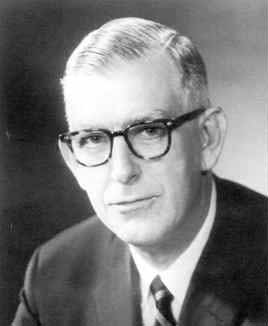

تاريخ الرياضيات

الاعداد و نظريتها

تاريخ التحليل

تار يخ الجبر

الهندسة و التبلوجي


الرياضيات في الحضارات المختلفة

العربية

اليونانية

البابلية

الصينية

المايا

المصرية

الهندية


الرياضيات المتقطعة

المنطق

اسس الرياضيات

فلسفة الرياضيات

مواضيع عامة في المنطق


الجبر

الجبر الخطي

الجبر المجرد

الجبر البولياني

مواضيع عامة في الجبر

الضبابية

نظرية المجموعات

نظرية الزمر

نظرية الحلقات والحقول

نظرية الاعداد

نظرية الفئات

حساب المتجهات

المتتاليات-المتسلسلات

المصفوفات و نظريتها

المثلثات


الهندسة

الهندسة المستوية

الهندسة غير المستوية

مواضيع عامة في الهندسة

التفاضل و التكامل


المعادلات التفاضلية و التكاملية

معادلات تفاضلية

معادلات تكاملية

مواضيع عامة في المعادلات


التحليل

التحليل العددي

التحليل العقدي

التحليل الدالي

مواضيع عامة في التحليل

التحليل الحقيقي

التبلوجيا

نظرية الالعاب

الاحتمالات و الاحصاء

نظرية التحكم

بحوث العمليات

نظرية الكم

الشفرات

الرياضيات التطبيقية

نظريات ومبرهنات


علماء الرياضيات

500AD

500-1499

1000to1499

1500to1599

1600to1649

1650to1699

1700to1749

1750to1779

1780to1799

1800to1819

1820to1829

1830to1839

1840to1849

1850to1859

1860to1864

1865to1869

1870to1874

1875to1879

1880to1884

1885to1889

1890to1894

1895to1899

1900to1904

1905to1909

1910to1914

1915to1919

1920to1924

1925to1929

1930to1939

1940to the present

علماء الرياضيات

الرياضيات في العلوم الاخرى

بحوث و اطاريح جامعية

هل تعلم

طرائق التدريس

الرياضيات العامة

نظرية البيان
William Gemmell Cochran
المؤلف:
R L Anderson
المصدر:
Biography in Dictionary of Scientific Biography
الجزء والصفحة:
...
14-11-2017
1632
Died: 29 March 1980 in Orleans, Massachusetts, USA

William Cochran took the University of Glasgow Bursary Competition in 1927 and he was placed first. The award of a bursary allowed him to take his first degree at Glasgow and he was awarded an MA in mathematics and physics in 1931. He won the Logan Medal for the best student in the Faculty of Arts and won a scholarship to study mathematics at Cambridge.
At Cambridge he took John Wishart's course in mathematical statistics, then proceed to take a practical course in the School of Agriculture. In 1934 R A Fisher left Rothamsted Experimental Station to accept the Galton chair at University College, London and Frank Yates became head at Rothamsted. Cochran was offered the vacant post but he was still not finished his doctoral course at Cambridge. Yates later wrote:-
... it was a measure of good sense that he accepted my argument that a PhD, even from Cambridge, was little evidence of research ability, and that Cambridge had at that time little to teach him in statistics that could not be much better learnt from practical work in a research institute.
Cochran accepted the post at Rothamsted where he worked for 5 years on experimental designs and sample survey techniques. During this time he worked closely with Yates. At this time he also had the chance to work with Fisher who was a frequent visitor at Rothamsted.
Cochran visited Iowa Statistical Laboratory in 1938, then he accepted a statistics post there in 1939. His task was to develop the graduate programme in statistics within the Mathematics Department. In 1943 he joined Wilks research team at Princeton.
At Princeton he was involved in war work examining probabilities of hits in naval warfare. By 1945 he was working on bombing raid strategies.
He joined the newly created North Carolina Institute of Statistics in 1946, again to develop the graduate programme in statistics. From 1949 until 1957 he was at Johns Hopkins University in the chair of biostatistics. Here he was more involved in medical applications of statistics rather than the agricultural application he had studied earlier.
From 1957 until he retired in 1976 Cochran was at Harvard. His initial task was to help set up a statistics department, something which he had a great deal of experience with by this time. He had almost become a professional at starting statistics within universities in the USA.
Cochran did much to promote statistics within the USA. R L Anderson in [1] sums up Cochran's contribution as follows:-
Cochran was that rarity, a man with both a keen mind and the desire to use it for the benefit of mankind. His office was always open to the struggling student, nonplussed scientist, or inquiring citizen.
- R L Anderson, Biography in Dictionary of Scientific Biography (New York 1970-1990).
http://www.encyclopedia.com/doc/1G2-2830905059.html
Articles:
- R L Anderson, William Gemmell Cochran 1909-1980, A personal tribute, Biometrics 36 (1980), 574-578.
- A P Dempster and F Mosteller, In memoriam: William Gemmell Cochran, 1909-1980, Amer. Statist. 35 (1) (1981), 38.
- H O Hartley, In memory of William G Cochran, Current topics in survey sampling (New York-London, 1981), 9-14.
- P S R S Rao, Professor William Gemmell Cochran : pioneer in statistics, outstanding scientist and noble human being, in Current topics in survey sampling (Ottawa, 1980), 3-7.
- G S Watson, William Gemmell Cochran 1909-1980, Annals of Statistics 10 (1982), 1-10.
- F Yates, Obituary: William Gemmell Cochran, 1909-1980, J. Roy. Statist. Soc. Ser. A 145 (4) (1982), 521-523.
 الاكثر قراءة في 1905to1909
الاكثر قراءة في 1905to1909
 اخر الاخبار
اخر الاخبار
اخبار العتبة العباسية المقدسة

الآخبار الصحية















 قسم الشؤون الفكرية يصدر كتاباً يوثق تاريخ السدانة في العتبة العباسية المقدسة
قسم الشؤون الفكرية يصدر كتاباً يوثق تاريخ السدانة في العتبة العباسية المقدسة "المهمة".. إصدار قصصي يوثّق القصص الفائزة في مسابقة فتوى الدفاع المقدسة للقصة القصيرة
"المهمة".. إصدار قصصي يوثّق القصص الفائزة في مسابقة فتوى الدفاع المقدسة للقصة القصيرة (نوافذ).. إصدار أدبي يوثق القصص الفائزة في مسابقة الإمام العسكري (عليه السلام)
(نوافذ).. إصدار أدبي يوثق القصص الفائزة في مسابقة الإمام العسكري (عليه السلام)


















